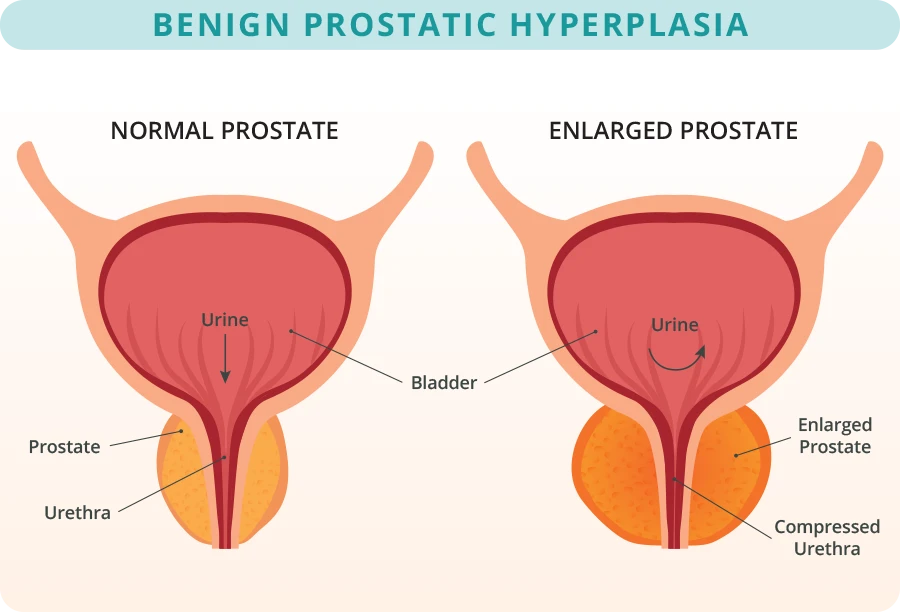Enlarged Prostate (BPH)
Understanding Enlarged Prostate: What You Need to Know
Enlarged prostate, also known as Benign Prostatic Hyperplasia (BPH), occurs when a man’s prostate gland grows abnormally in size. This walnut-shaped gland, responsible for sperm production, can restrict the urethra – the tube that carries urine from the bladder to the penis. As a result, urinary flow can be blocked, leading to uncomfortable symptoms that worsen over time.
Common symptoms of BPH include:
- Incomplete bladder emptying
- Dribbling at the end of urination
- Weak or interrupted urine stream
- Frequent or urgent need to urinate
- Increased nighttime urination (nocturia)
- Difficulty starting urination
- Urinary tract infections
- Inability to urinate
- Blood in the urine (hematuria)

While there is no guaranteed prevention for BPH, there are strategies that may help reduce the risk. Maintaining a healthy weight and following a balanced diet rich in fruits and vegetables can be beneficial. Regular physical activity can also regulate hormone levels and control weight. However, it’s important to avoid caffeine, acidic drinks (like soda and orange juice), tomato juice, and alcohol.
Factors that may increase the risk of developing BPH include:
Family history: If you have a blood relative with prostate issues, your likelihood of experiencing problems increases.
Aging: Prostate enlargement becomes more common after the age of 40. By age 60, one out of three men have moderate to severe symptoms, and by age 80, it affects one out of every two men.
Lifestyle: Regular exercise can lower the risk, but obesity increases the chances of developing BPH.
Diabetes and heart disease: Studies suggest that using beta blockers, as well as having diabetes or heart disease, may increase the risk of BPH.
By understanding the symptoms and risk factors associated with enlarged prostate, you can take proactive steps toward maintaining your urological health. It’s always recommended to consult with a healthcare provider for personalized advice and guidance.
Treatments for BPH
See Greenlight Laser, Urolift , and Rezum for more details on how we address Benign Prostatic Hyperplasia. Schedule an appointment today with our healthcare providers at Urologic Institute of Orange County so we can help you navigate the uncertainties of BPH!